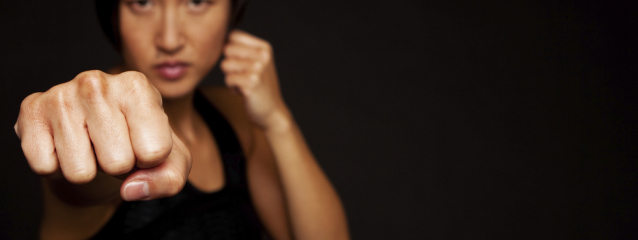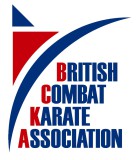
Our Syllabus
Our syllabus blends practical martial arts with self-defence skills relevant to the UK. Progression is carefully managed so that you learn the application and purpose of individual techniques, as well as how to perform them, before joining them together into more sophisticated drills.
The syllabus has 10 grades before black belt, and if you train most weeks with some practice in your own time then you can expect to move up a grade every six months. However, our focus is always on useful, practical skills rather than the acquisition of belts.
The sections below provide an outline of the key new learnings at each level. They are not the complete syllabus. Remember as well that you need to be competent at everything from lower levels too and may be tested on it.
Gradings
We hold a grading about every four months, although we may move dates if people are nearly, but not quite, ready to grade. Gradings last three hours and take place as part of a normal session. Every one goes through their grading material even if they are not looking to earn their new belt at this time. The exception is the black belt grading which is a closed session (those grading and those already holding a black belt only) with external examiners. These happen once a year.
Gradings are nothing to be afraid of. They are a way of testing your knowledge and building your confidence in your self-defence skills.
Red belt
New students focus on getting the basics right. Self defence doesn't need 100 techniques, or flashy sequences of techniques. The most important lessons are the ones you learn first: avoiding dangerous situations, how to punch and kick hard, etc.. To earn your red belt you will learn:
- Self Defence:
- The fundamentals of power generation
- Weight distribution and the basic fighting stance
- Close range strikes (hook, upper cut, elbow, head butt, hammerfists, knee)
- Medium range strikes (jab, cross, power slap)
- Long range srikes (pushing kick, groin kick, roundhouse kick)
- Blocking cricular and straight punches
- Drills
- Combinations of hand techniques (jab, cross, hook, etc.) against focus pads while moving around the floor
- Playing for grips (forearm / neck; back / triceps; neck / neck)
Yellow belt
To earn your yellow belt, you will need to understand the fundamental non-physical techniques of self-protection - safety at home and on the road, de-escalation, etc. We introduce the principles of throwing and basic arm locks. The principles of flexibility and maintaining strength and fitness are included on the syllabus as well as your first "fitness test" which we use to measure progress towards the standards required to train effectively at higher levels. Fitness is absolutely critical to self-defence but our aim is to help you improve, and gain knowledge on how to manage your own future development. We do not set absolute standards that you need to achieve. Finally, we add simple escapes from chokes and bear hugs.
- Self Defence
- Defence from choke from behind
- Defence from bear hug from behind, three different arm positions
- Releases from grabs
- Techniques
- Breakfalls
- Side-snap kick
- Side kick to knee
- Leg sweep
- Inward block and outward block
- Basic principles of throwing
- Outer reaping throw
- Hip throw
- Drills
- Simple combinations of hand / leg techniques
- Free sparring
- Grappling for the back
- Clinch sparring
- "Get Up and Hold Down"
Orange belt
This is a critical level for self-defence training. At this point, you've been training in our system for about a year and have understood the basics of self-defence against an unarmed opponent. We now introduce the basic principles of dealing with armed attackers - knife and stick - as well as how you can find and use weapons in an emergency.
- Self Defence
- Knife threats from the front, side and behind
- Stick attacks
- Using bags, belts, phones, etc., as weapons in an emergency
- Power slap with dialogue
- Techniques
- Hip throw, cross buttocks throw, ring throw
- Dropping elbow, round elbow, rising elbow
- Three different knee strikes
- Grappling
- Mount hold, scarf hold, side control - pressure tested
- Ground fighting arm locks from mount and scarf hold
- Rear naked strangle and choke
- Shrimping
- Getting up from the ground
Green belt
At this level the basic techniques are fleshed out to more "what if?" scenarios.
- Self Defence
- Using a stick offensively
- Defending from chokes from the front and when pushed against a wall
- Defending from bear hugs from the front and side
- Defending from leg shoots at all ranges
- Responding to knife threats and knife attacks
Purple belt
Anti-grappling makes its first appearance at this level. We introduce this late in the syllabus because ideally we will not be fighting on the ground, but we need to know what to do in case we end up there.
- Self defence
- Escape from mount hold, scarf hold and side control
- Defending from chokes on the ground
- Defending from stomps and other kicks to the head while on the ground
- Techniques
- Shoulder throws
- Back kick on the spot and turning
- Advanced breakfalls including forward and backward roll
- Single and double leg takedowns
Blue belt
- Self-defence
- Responding to knife attacks from multiple directions including while being held
- Hand gun defences from the front
- Techniques
- Returning wave kick
- Chokes when being held on the ground (face up and face down), moving or pushed against a wall
Brown belt
- Techniques
- Jumping kicks (front, roundhouse, back)
- Crossing kicks
- Skipping kicks
- Advanced power generation
Brown belt, one stripe
- Techniques
- Machine gun takedown
- Long gun defences
Brown belt, two stripes
- Self defence
- Multiple attackers
- Multiple armed attackers
Black belt
To achieve a black belt requires extreme focus and dedication. Above all else we are looking for the right mindset for self defence. The syllabus introduces very little new material as you are expected to spend your time perfecting your technique and power along with that critical mindset as well as developing a deep understanding of the underlying theory of what we teach.
The black belt grading is conducted in front of an external panel of senior experts. Before this grading you will be expected to have attended relevant sessions conducted by external experts (e.g., Peter Consterdine, Iain Abernethy) to expand your knowledge. You will also need to have the necessary fitness for the grading which will last at least four hours and involve pushing you to your physical limits.
Finally, you will need to attend an oral examination where we will assess your knowledge of self-defence, fitness training, self-defence law, etc. While the black belt is not a teaching qualification, our intention is that you have sufficient knowledge to be able to continue your learning without supervision and therefore we must establish that you have the necessary skill to do this.
